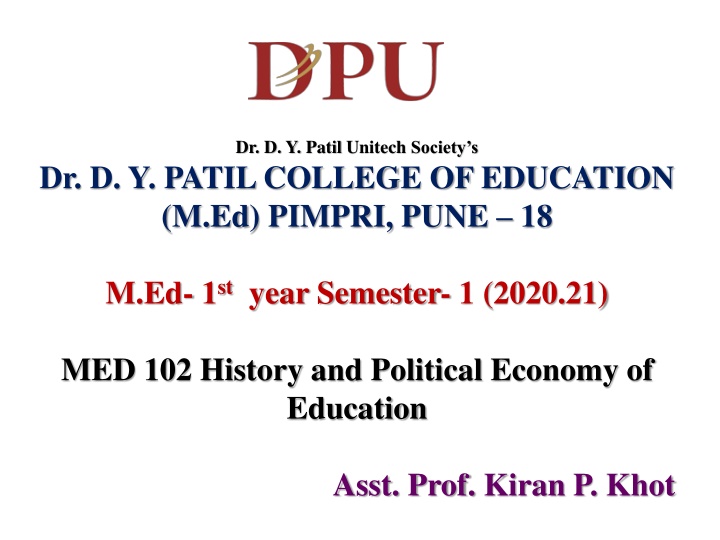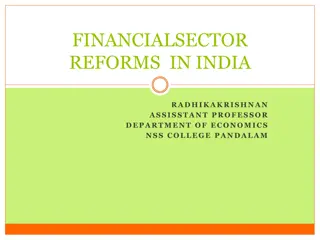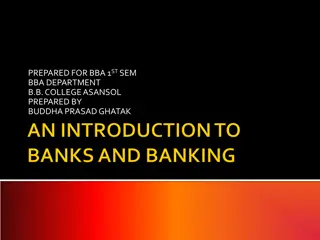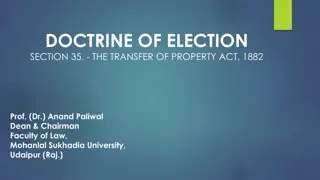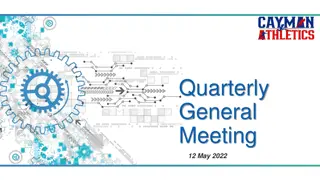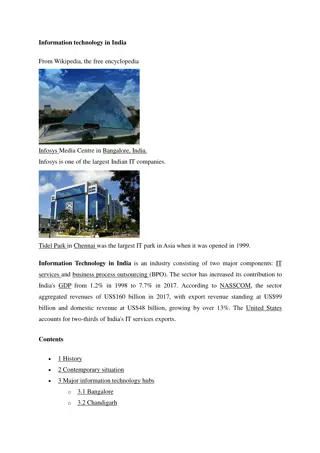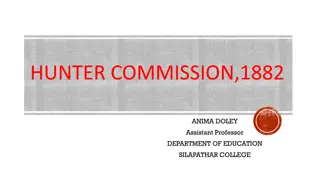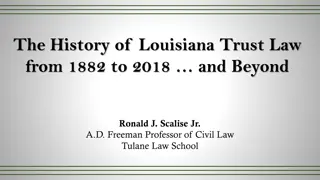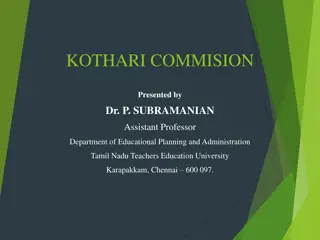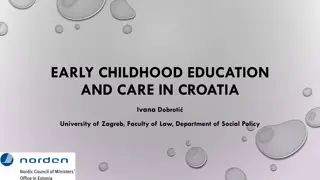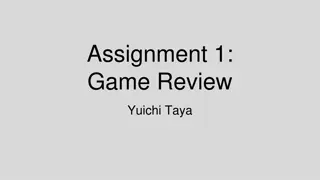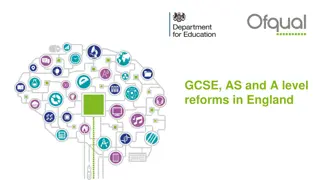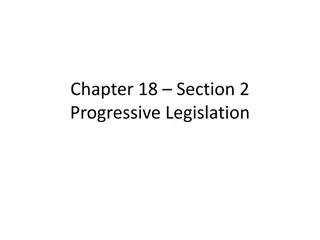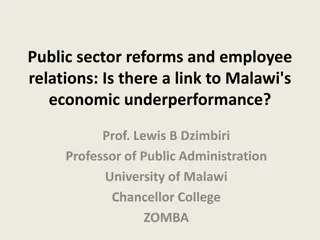Hunter Commission of 1882 and Educational Reforms in India
The Hunter Commission of 1882 marked a pivotal moment in the history of education in India, following the transfer of administrative power from the East India Company to the British Crown. This commission, led by Sir William Hunter, assessed the state of education in the country and made significant recommendations for improvement. The commission's formation was a response to the dissatisfaction of missionaries with the government's policy of religious neutrality. Key figures such as Lord Ripon played crucial roles in instituting the commission and addressing the educational needs of India.
Download Presentation

Please find below an Image/Link to download the presentation.
The content on the website is provided AS IS for your information and personal use only. It may not be sold, licensed, or shared on other websites without obtaining consent from the author.If you encounter any issues during the download, it is possible that the publisher has removed the file from their server.
You are allowed to download the files provided on this website for personal or commercial use, subject to the condition that they are used lawfully. All files are the property of their respective owners.
The content on the website is provided AS IS for your information and personal use only. It may not be sold, licensed, or shared on other websites without obtaining consent from the author.
E N D
Presentation Transcript
Dr. D. Y. Patil Unitech Societys Dr. D. Y. PATIL COLLEGE OF EDUCATION (M.Ed) PIMPRI, PUNE 18 M.Ed- 1st year Semester- 1 (2020.21) MED 102 History and Political Economy of Education Asst. Prof. Kiran P. Khot
HUNTER COMMISSION 1882
INTRODUCTION The present educational system in India is not created in one day. It is the result of the introduction of changes and modifications in the system for a long period of time. This unit will help us to understand the conditions of Primary and Secondary education in India after Wood s Despatch of 1854. Hunter commission made a thorough enquiry on the present condition of primary and secondary education in India. Based on the findings of its enquiry the commission made valuable recommendations to improve the conditions of primary and secondary education in India
HUNTER COMMISSION OF 1882 The administration of India by East India Company came to an end in 1857. As a result of the first struggle for independence by Indians in 1857,the power of administration was transferred from the East India Company to the British Crown. The Queen s proclamation of 1858 advocated a policy of strict religious neutrality. It was because of the Goverment policy of religious neutrality the missionaries were greatly disappointed .After the transfer of administrative power from the East India Company, it was considered necessary to assess the development of education in the country. It was felt that the grant -in-aid system as suggested by Wood s Despatch was not properly carried out. Because of all these reasons, the missionaries started an agitation and formed an organization in London which was known as the General Council of Education in India . When Lord Ripon was appointed the viceroy of India, a deputation of the General Council of Education requested him to institute an enquiry into Indian Education. Lord Ripon appointed the first Indian Education Commission on 3rd February 1882. Sir Willium Hunter (a member of viceroy s Executive Council) was appointed as the chairman of the commission. The commission was popularly known as Hunter Commission after the name of its chairman. Besides the chairman, the commission consisted of 20 other members. There was a good representation of missionaries and Indians in the commission. Among the Indian members were Sayed Mahmud, Bhudev Mukherjee, Anand Mohan Bose and K.T.Telang.
1.As a result of the first struggle for Independence by Indians in 1857,the power of administration was transferred from the East India Company to the Crown 2.The Queen s Proclamation of 1858 advocated a policy of strict religious neutrality. 3.The missionaries were greatly disappointed with the Government policy for religious neutrality and started an agitation and formed the General Council of Education in India in London. 4. The General Council of Education requested Lord Ripon, the viceroy of India to institute an enquiry into Indian education. 5. Lord Ripon appointed the Indian Education Commission on 3rd February 1882, with Sir Willium Hunter as its Chairman. It is known as Hunter Commission of 1882.
Aims and Objectives of the Commission The commission was appointed with the following aims: 1.To enquire into the manner in which effect had been given to the principles of the Despatch of 1854. 2.To assess the position of primary education in India and to suggest measures for its reform. 3.To enquire into the position of the State institutions and their importance. 4.To evaluate the work of missionaries in the field of education. 5.To enquire into Government attitude towards private enterprise. The Commission also undertook an enquiry into the conditions of secondary education and to suggest measures for its improvement. The main aim of the Commission was to assess the implementation of the recommendations of Wood s Despatch.
Recommendations of Hunter Commission on Primary Education Accordingly the Commission made valuable recommendations for the development of primary education. The recommendations can be discussed under six heads:- (a) Policy (b) Legislation and Administration (c) Encouragement of indigenous schools (d) School Administration (e) Training of Teachers (f) Finance
(a) Policy : (i) Primary education should be regarded as the instruction of the masses. It should be closely related to the practical aspect of the life of the masses. (ii) Primary education should be imparted through the medium of mother tongue. (iii) The Government should extend more patronage to primary education than before. (iv) In selecting persons for appointment to the government post of a lower order, preference should be given to the candidates who can read and write. (v) Primary education in backward districts, especially in those areas inhabited by aboriginal races, to be extended by the Department of Education through liberal grant- in-aid.
b) Legislation and Administration: (i) The control of primary education should be handed over to District and Municipal Boards. (ii) The local boards should deal with the whole system for primary education as regards to finance, management, expansion and inspection of primary education of the particular local area. (iii) Transfer of all government primary schools to the local boards was considered necessary.
(c) Encouragement of Indigenous Schools : (i) Indigenous schools need encouragement for their improvement. Efforts should be made to encourage these schools. (ii) The Commission held the view that the Districts and Municipal Boards consisting of Indians would be more sympathetic to the indigenous schools than the Education Department and recommended that the work of assisting indigenous schools should be assigned to them. (iii) The Commission recommended that a system of Payment by Results should be adopted in dealing with indigenous schools. (iv) The same standard of examination should not be maintained throughout the whole state.
(D) School Administration: Regarding the management of the schools the Commission recommended. (i) School houses and furniture should be simple. (ii) The managers should be free to choose the text books for their schools. (iii) School hours and holidays should be adjusted according to local needs. (iv) Instruction in primary schools should be simplified. Practical subjects like native methods of arithmetic, accounts and mensuration, elements of natural and physical sciences, agriculture, health should be introduced. (v) Various native games and exercises should be introduced for physical development of the students. (vi) Night schools should be established wherever necessary.
(E) Training of Teachers: (i) Normal schools should be established for the training of primary school teachers. (ii) There should be at least one Normal School in each division. (iii) The cost of Normal schools should be met from provincial fund. (F) Finance: (i) Every District and Municipal Board should maintain a separate Fund for primary education. (ii) The Provincial Government should grant one third of the total expenditure to the local bodies. (iii) The cost of maintaining, aiding and repairing of primary schools should be met from local fund.
Major Recommendations of Hunter Commission of 1882 on Primary Education were. Primary education should be regarded as education of the masses. Education should be able to train the people for self-dependence. Medium of Instruction in primary education should e the mother tongue. Appointment of teachers should be made by the district authority and approved by the government. School houses and furniture should be simple and economical. Normal Schools should be established for the training of teachers. Curriculum should include useful subjects like agriculture, elements of natural and physical science and the native method of arithmetic and measurement etc. School equipments should be economical and less expensive. Spread of primary education for the tribal and backward people should be the responsibility of the Government. Fees should be example to students on the basis of their financial difficulties.
Recommendations on Secondary Education By now we are acquainted with the recommendations of the commission on Primary education. Although the Hunter Commission recognized primary education as the prime concern of the state, it also made important recommendations on secondary education. These recommendations can be divided into two heads - (A) Administrative Reform, and (B) Qualitative Improvement
A)Administrative Reform: The Hunter Commission made some important recommendations to administrative reform of Secondary Education in India. The recommendations can be summed as given below: (i) Government should gradually withdraw itself from the field of secondary education. (ii) Expansion of secondary education should be entrusted to efficient private enterprise. (iii) Government should sanction great-in-aid to improve secondary education. (iv) It was felt necessary that the government should maintain some secondary schools, at least one Model High School in those districts where they may be required in the interest of the people. (v) To encourage the private enterprise, the commission suggested that the managers of Aided Schools might charge less fee in comparison to the neighbouring Government Schools.
B)Qualitative Improvement: The Commission made many useful recommendations for the qualitative improvement of Secondary Education in India. Following are the major recommendations. (i) The Commission recommended that the curriculum at the secondary stage should be bifurcated as A course and B course . (ii) A course should be prepared for students to go for higher study in Universities. (iii) B course should be of practical type meant for commercial and non-literary studies. (iv) The commission did not refer to the use of mother tongue as medium of instruction at the high school stage. It favoured English as the medium of instruction (v) The commission did not lay down any definite policy with regard to middle school so far as medium of Instruction is concerned.
Reference :- Mukherjee, S.N. (1964) Education in India, Today and Tomorrow. Baroda:Acharya Book Depot. Nurullah, S. and Naik, J.P.(1975) A Student s History of Education in India (1800-1961) Revised Fourth Edition. Bombay:MacMillan and Co. Ltd. Sharma,S.(2005) History and Development of Higher Education in free India. Jaipur; ABDPublishers. Shrimali, K.L.(1961) Problems of Education in India. New Delhi: Publications Division Govt. ofIndia. Shrimali, K.L. (1965) Education in Changing India. Bombay: Asia Publishing House. Singh, B.P. (1990). Aims of Education in India. New Delhi: Ajanta Publication.
